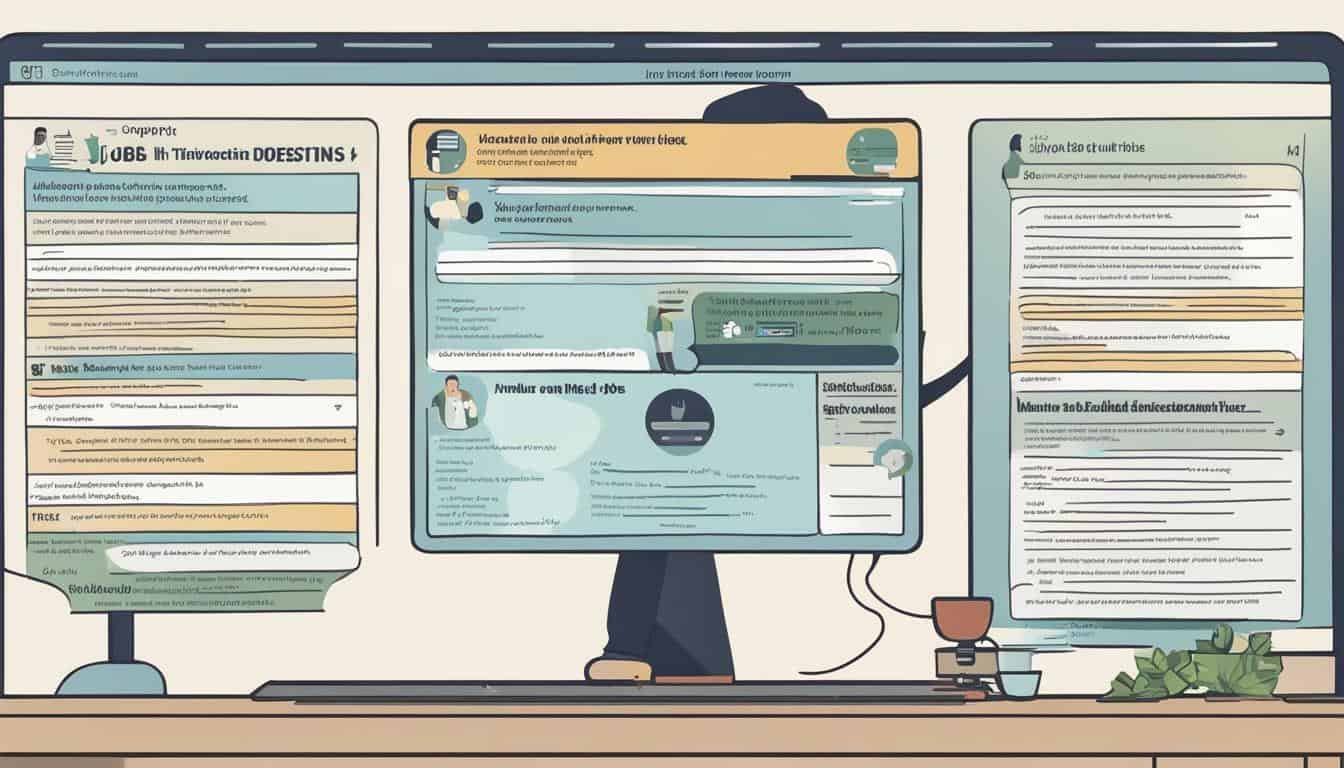How to Get Your Point Across Without Any Misunderstanding
“Wise men speak because they have something to say; Fools because they have to say something.”
(Plato)
Before we embark on learning the best strategies to get your point across, I want to ask you a simple question.
Is there any universal skill that we can learn and make an impact in all aspects of life, be it a professional journey, social gatherings, and family life?
How to Get Someone To Understand You Finally
The only way to know if someone understood you clearly is by the end result.
I know that you are familiar with the right answer, which is COMMUNICATION SKILL.
No one can deny the importance of having excellent communication skills to get succeeded in life.
A great communication skill is a critical factor in boosting up your professional career.
This is the good communication that results in all transactions.
Correctly delivered information generates understanding, satisfaction, and a sense of achievement while, on the contrary, poor communication creates misunderstanding and frustration.
This is not WHAT you deliver; the keyword is HOW you deliver a particular message.
Please remember to Get Your Point Across
However, despite knowing that communication is an essential skill one must possess to achieve greatness in his or life, most of us are seen as severely failing at communication.
We have noticed that in most cases, the presenter seems to be boring and fails to deliver what he wants.
Have you ever wondered why one gets de-tracked while delivering a meaningful message? Why does he fail to get his point across to his audience and lose interest in his speech?
There is no doubt that we all want to be heard, valued, and understood, but we often think long and hard about what we want to say.
We all want to make a difference in people’s lives with our verbal or non-verbal communication skills, but we don’t know how we achieve it.
Let’s do it. Grab your popcorn, and we delve into the most appropriate strategies of getting your point across.
Get to the point you want to say
Whatever the scenario of your speech is, your focus must be the message you were asked to deliver.
Whether you are passing on some instructions to your employees, ordering a pizza, or gossiping with your friends and family, be clear on what you are saying.
It is imperative to say the right thing only so that the listeners understand it. Before you go ahead and start your speech, ask yourself a couple of questions.
- Do I know what I want to say?
- Do I have the appropriate vocabulary/correct selection of words?
- Am I clear on my point of view?
- Knowing what you want to say is a crucial factor in making your audiences believe in your speech.
We often make notes for our memos; we note down the right words for our speeches so that we can keep on track.
Sometimes, we practice what we are going to say. Choosing the right words for a particular message or statement is the only best way to deliver it correctly.
There are countless books and articles on communication skills where authors have asserted why sending the right, precise, and concise message is important.
They try to teach you why it is vital to send what you want to send.
The communication writers have stressed that whatever the medium of your message is, be it a vocal speech or a written piece, you must be clear and to the point. That way, you can get across to your audiences.
Always with the main idea in your mind to Get Your Point Across
Know your audience
Who are you talking to?
To communicate effectively and to achieve your purpose, you must adapt to your audience.
When you communicate, the sole purpose is to compel your audience to take action and do what you want them to do.
It doesn’t mean what YOU want to do; you need your audience to understand what you are saying.
And for that purpose, you must know the nature of your audience which will help you to determine your strategy.
The nature of speech varies along with the audience.
You might be writing a memo, or delivering a commencement address, talking to your kids or laughing with your friends, ordering a cup of coffee, or talking to your employees. Generally, there are two types of audiences, heterogeneous (audience with different skill levels or information) and homogeneous (audience with the same skill levels or information).
You must clarify your mind on what your audience has in common and what they differ in.
Knowing your audience helps you consider what is on their mind and how you do want them to listen to you.
It is an undeniable fact that speaking or writing to your audience’s expectations is key to your success, but how do you understand your listeners or readers?
There are three main pillars. Research, efforts, and time. Give some time to make efforts for in-depth research or analysis and understand the psyche of your audience.
Once you know the nature and expectations of your audience, no one can stop you from winning their hearts.
Stop when delivered
Once the message is delivered, and you have made your point, stop it.
At this point, you would have a question popped up into mind that is, is this really important to mention here? It’s simple, and everybody stops once he is done, isn’t it?
It seems simple and easy to do, but, in fact, it’s not.
We often don’t realize that we are done with our point of view and that we should stop now.
You must pause after you have delivered your message, and it is a powerful strategy.
By hitting the pause button, you are blessing your audience with some time to sink in what you have said and giving yourself some time to organize more arguments and points that will support and defend your thesis or discussion.
Remember that by stopping for a moment, you get more time to think about what you have to say next, and that's what makes you precise and to the point, a prerequisite to be a leader in your team.
Do not over-explain wait until they respond or ask questions to clarify anything and please remember to Get Your Point Across
Give valid reasoning
Supporting your argument with proper reasoning is the key to getting your audience your way.
Make your readers understand the reason why the advice given by you is worth their time, effort, and money in some cases.
Explain to them the WHY of your argument, and why they should do what you are asking them to do.
We all know that our kids must study hard, but what if they ask us why they should do hard work? We can say that hard study ensures your bright career and happier life ahead.
That’s the solid reason that can help us compel our kids to study hard.
Being an entrepreneur, you have to give big reasons to stakeholders listening to your pitch.
If the reason is valid and supports your ideas, you get a win-win chance. Hence, it is imperative to adorn your message with proper reasoning.
Make sure you are calm and comfortable.
Only talk when you are calm and comfortable.
Sometimes, we get angry about wrongdoings, and it's natural; we must do, but sometimes getting angry becomes a choice.
At this point, what you should do is make an effort to understand the position of others.
You must learn the tactics to turn the wrong and negative points and comments into right and positive ones.
Don't speak or write when you are angry or desperate. Take some pause and be clear and calm. Only speak when you are comfortable.
Acknowledge both sides of the story
It’s not uncommon that a story has positive along with negative sides.
If a situation appears where you get something that has its Pros and Cons, acknowledge both of them.
Take responsibility for the Cons and negative aspects as well.
No one can brush aside the fact that telling both sides of a story helps you persuade your audience to trust in you.
It emphasizes that your objective is clear. Whatever your plans are, you are putting up a business idea or solving a problem; you are crystal clear in showing them everything.
Make your speech digestible.
Don't confuse your listener; keep your points as simple as possible.
Don't use fancy words that can create a state of misunderstanding in your audience's minds.
Make the argument as much easy to digest as you can.
The more natural the argument or point of view is to digest and understand, the more persuasive it would be.
Putting your points in an easy-to-understand way ensures that everybody sitting in front of you completely understands your message.
Not everybody is an expert at getting the message from body language and expression. So, the simple the message, the higher the conversion rate.
Cite your sources
Before your audience asks you about the sources you are quoting, tell them about your credible sources.
Don’t just rely on your authority and experience.
Let them know well-known research and stats back that argument you are putting in front of them.
It is necessary to cite your sources, so if anybody wants to confirm and verify your points, he can do it easily.
And in this case, your credibility will soar up. People will start believing in you and your authenticity.
Don’t fight
Don’t fight-don’t be irrational.
When you are in an argument with someone and get your voice raised or feeling upset, this is your state where your audience is least or not interested in you. Remember that nobody is right or wrong, they could be wrong from your perspective, but they are always right in their opinion.
So it means you will fight them to compel them to agree with you?
If an argument or an opinion contradicts with your one, accept it wholeheartedly.
Don't try to title him or her as WRONG.
If you are good at communication, you will welcome their opinion and point of view.
It will increase your respect and admiration.
No, not at all. Relax and accept their opinion with open arms.
Don’t insult them or cut them off. Listen to their arguments and beliefs.
Don’t let them be defensive with your irrational approaches. Respect them, and they will do the same for you.
Focus your audience
The most important is not what you (sender) send; the main focus is what your audience (receivers) receives.
If you want to get your point across to your viewers, you must learn the technique of tailoring your message to your audience’s comprehension and perception level.
Don’t get worried about what you say; the only thing to consider is what your receiver side understands.
How Can I Help Someone Understand My Reasons for Leaving Jobs?
When it comes to reasons for leaving jobs, communication plays a vital role in helping others understand your perspective. Clearly and honestly expressing your motives can foster empathy and minimize misunderstandings. By outlining your reasons for leaving jobs, you can highlight personal growth, career goals, or the need for a better work-life balance. Sharing this information with empathy and openness will facilitate a clearer understanding of your decision.
Conclusion:
In any form of life, communication is the most frequent element, and successful are those startups, businesses, and industries that are equipped with the extraordinarily good communicator.
If you want your kid to study hard, your pitch to be appreciated and accepted by the stakeholders, your friends to believe in you, your family to understand and support you, your employees to stay loyal to you, the one and only one skill that you have to master is COMMUNICATION SKILL.
The delicate and polite the communication, the higher the chances of winning hearts, projects, and relationships.
As we have already mentioned that communication is a skill, and with practice and proper working at it, you can master it.
You must understand that we all have different mindsets, and the way we perceive things is different from each other.
It is communication skills that teach us to stay humble if an opinion contradicts with ours.
As said by Anthony Robbins, “To effectively communicate, we must realize that we are all different in the way we perceive the world and use this understanding as a guide to our communication with others.”
We firmly believe that the above-mentioned strategies, if followed and adopted adequately, can help you boost your communication skills up and leave an impactful impression on your personality.
I would like to give an end to our guide with a quote by John Powell
“Communication works for those who work at it.”
did you like this content? well if you made it all the way to the end as I hoped you should check out this article.
Also if you are interested in high communication skills I want to leave you with awesome resources that will help you in your personal and professional life.
The first is this video that will show you how 70% of the message you want to transfer is by body language you might want to leverage that in your speech.
here are some articles you might enjoy as well like do you need to go to college to become a coder?
And if you are like me to retain more information with a video I suggest this one, it's from Standford graduates so it's good...





